Quit Ozempic? 4 Ways to Maintain Your Weight Loss Results

Have you successfully lost weight with Ozempic, Wegovy, or any other GLP-1 medication but now worry about regaining those pounds once you stop taking it? You're not alone. Many patients face this common concern, but there are strategies to maintain your weight loss. Dr. Kidd, MD, a dual-trained expert as both a Board Certified Family Medicine Physician and a Board Certified Physical Therapist, shares his insights on how to keep the weight off after discontinuing these popular weight loss medications. "I'm going to go through four tips and techniques that my patients have successfully used to maintain their weight when they come off Ozempic," says Dr. Kidd in his YouTube video. Read on to learn his no-nonsense tips.
Tip 1: Create an Environment for Weight Loss

Dr. Kidd explains in his video, "Developing long-term habits is a key element of maintaining weight loss, not only after following the cessation of Ozempic but for anyone who wants to maintain weight loss in the long-term. Now, we all know changing habits is very difficult, but one key principle I've found that's been very helpful is actually from a book known as The Atomic Habits by James Clear. In this book, he talks about creating the right environment for habit change. In his book, he tells us to change our habits. You should not focus on just a specific goal like I want to lose X amount of weight or try harder. Rather, what he tells us to focus on is to create systems in our environment that make good habits easier to do and bad habits harder to do."
RELATED: 20 Things You Need to Know About Ozempic and Weight Loss
How to Do It
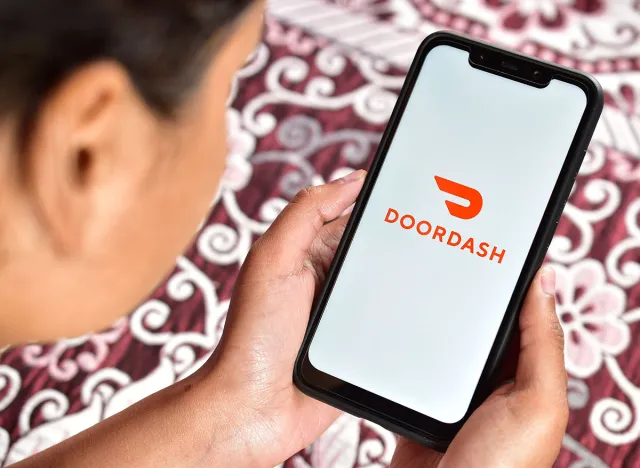
Dr. Kidd offers several practical suggestions in his video: "Delete all the food delivery apps off your phone right now. This way, it'll be much harder for you to order takeaway because you will have to reinstall the applications. Again, turn your TV off at the wall switch and leave your remote really far away from your couch. This will add the extra few steps that you'll need to take. If you want to binge on the couch and watch Netflix, you had better cancel your Netflix subscription altogether. Also, throw away all sugary food and junk food from your house right now and make sure that you don't buy anymore if it's not in your house, it makes you much more difficult to eat."
He continues, "Now, you can also make environmental changes that make good habits easier to do. For example, if you like to go to the gym for exercise, make sure that the gym that you go to is really close to your house or work, so there's little resistance of going there."
Tip 2: Eat More Slowly

In his video, Dr. Kidd highlights the importance of eating speed: "There was a massive study done in Japan on about 60,000 people on the effect of eating speed on weight loss. What they found was that people who ate more slowly were less likely to gain weight, and people who ate more quickly gained weight more quickly. How this works is not completely understood, but it's thought that if you eat slowly, you allow time for us to take hormones that kick in and tell us that you're full before you consume too much food. One example of these hormones is leptin, which is a hormone that's released from our fat cells, and this is the hormone that signals our brain, particularly an area called the hypothalamus, that we're full and to stop eating."
How to Do It

He adds in the video, "The idea that eating speed affects weight gain is also consistent. When we watch videos on people who eat large amounts of food in eating challenges, usually in these challenges, you see them eat extremely quickly, and this allows them to consume large amounts of food. So, next time you eat, make sure that you take your time. It might actually help you lose weight, and you don't even have to change what you're eating."
RELATED: 20 Possible Ozempic Side Effects
Tip 3: Wean Off Medication Slowly
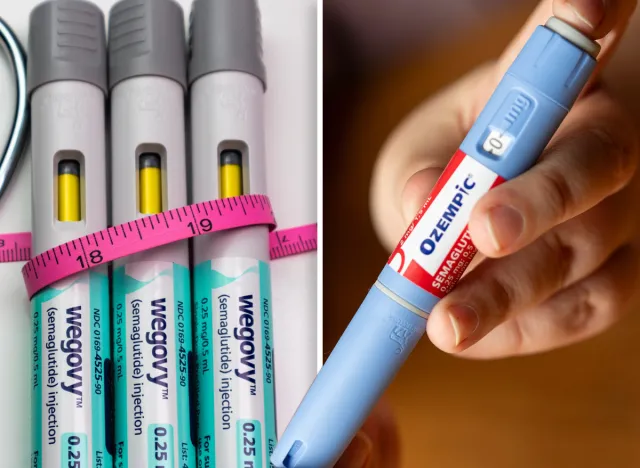
Dr. Kidd advises on medication management: "Semaglutide, which is the active ingredient in Ozempic and Wegovy, helps with weight loss by suppressing your appetite. It does this by mimicking a hormone known as the GLP one hormone, which is a hormone that helps tell our body that it's full for some patients. If you suddenly come off the medication after a high dose, it may result in a large return of appetite."
How to Do It
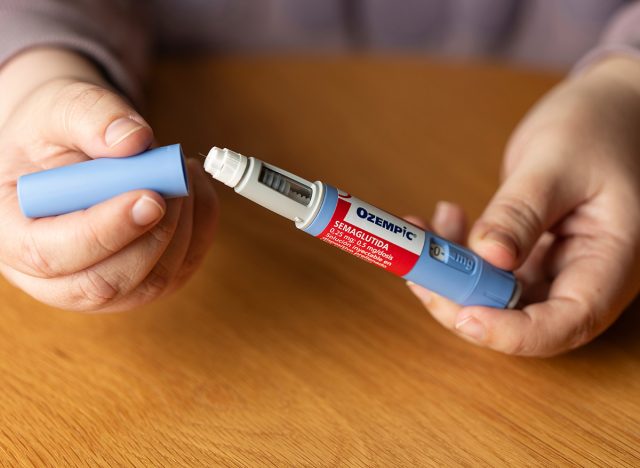
One way to smooth the transition is to wean the medication slowly. To give you an example, if you're taking on Ozempic one milligram, you can go down to 0.5 milligrams weekly for four weeks and then go down to 0.25 milligrams weekly for four weeks, and then I would go down to 0.25 milligrams fortnightly for eight weeks. This will allow you time to acclimatize to the changes in appetite."
RELATED: What Happens to Your Body When You Stop Taking Ozempic
Embrace Intermittent Fasting
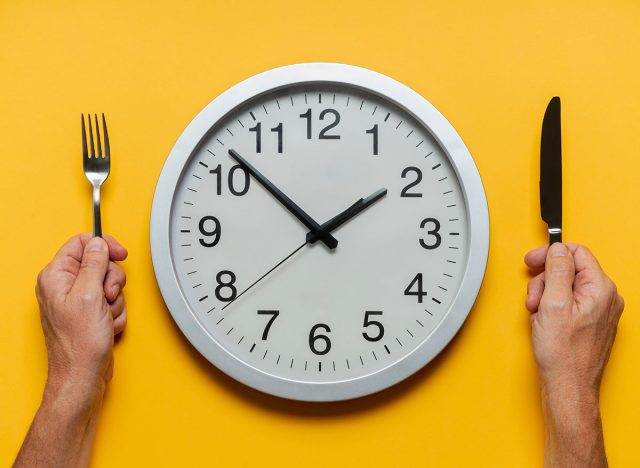
Dr. Kidd explains the concept of intermittent fasting: "Intermittent fasting broadly speaking refers to any diet where a person voluntary partakes in periods of eating separated by periods of fasting. There are many methods of intermittent fasting described, but some of the more popular methods include the 16 and eight method where every single day you fast for 16 hours of the day and you eat eight hours of the day.
How to Do It
Another method that's commonly described is the five and two method. This is where you could eat normally for five days of the week, but you fast for two days of the week. But in those two days, you can actually eat between 500 to 600 calories regardless of what fasting method you use."
How Intermittent Fasting Helps
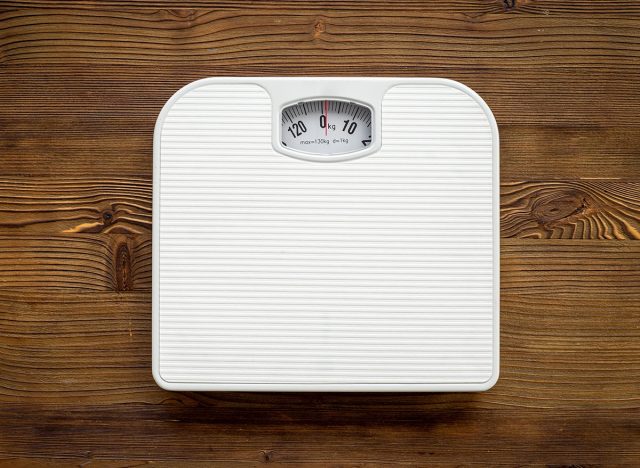
Dr. Kidd elaborates on the benefits in his video: "One of the key ways intermittent fasting helps us lose weight is it gives our body time to burn fat. Normally when we eat food, our body has to store some of it to use for energy later. Two of the key stores of energy in our body are glycogen and fat. Glycogen is made up of sugar and glucose that we eat in our diet, and it's usually stored in the liver. A little bit is also stored in the muscles of our body. When we start fasting, our body actually goes for the glycogen stores first and uses that up for energy.
RELATED: 20 Things to Avoid While on Ozempic
Why Fasting Helps Burn Fat

However, with prolonged fasting, our glycogen stores will become depleted, and the body has to look for another source of energy. This is when your body will start burning fat through a process called ketosis. This is why fasting is so important: if you're eating three meals a day plus snacks, you're not leaving enough time to fast for the body to get through those glycogen stores and start burning the fat. So this is why I encourage patients to embrace fasting, and I do see patients that can stick to long periods of intermittent fasting and maintain their weight loss." And if you enjoyed this article, don't miss 20 Incredible Ozempic Success Stories of All Time.




